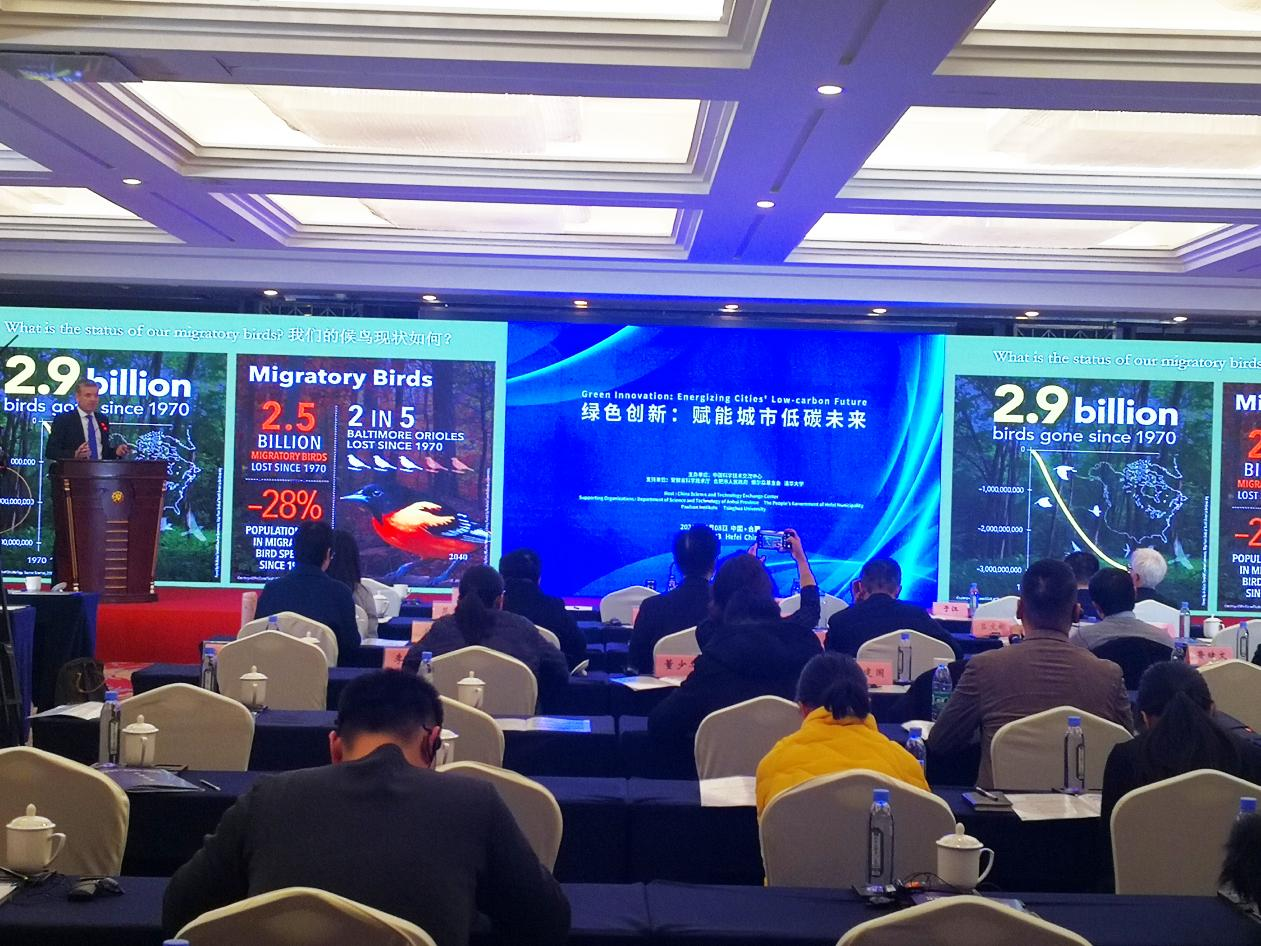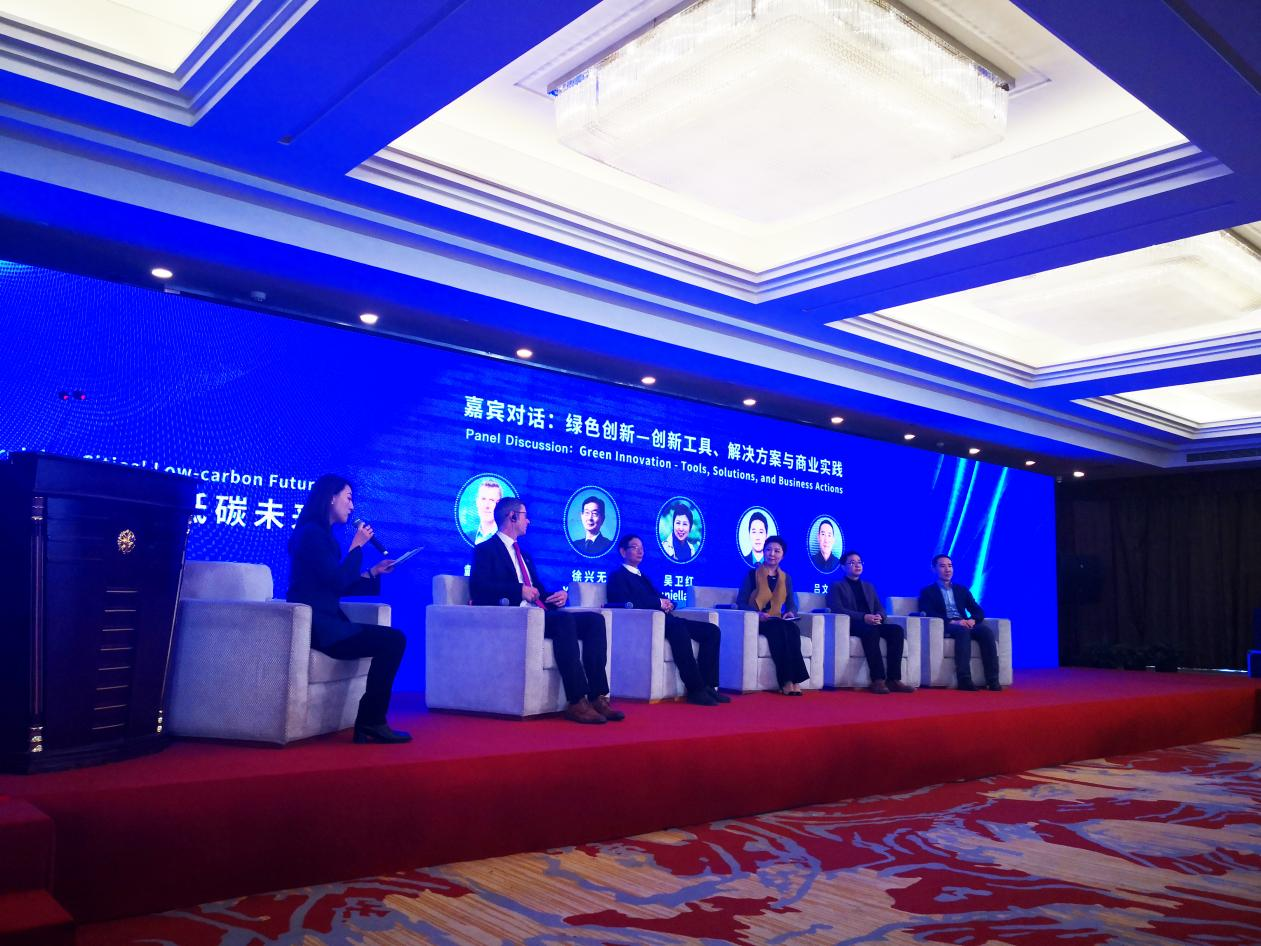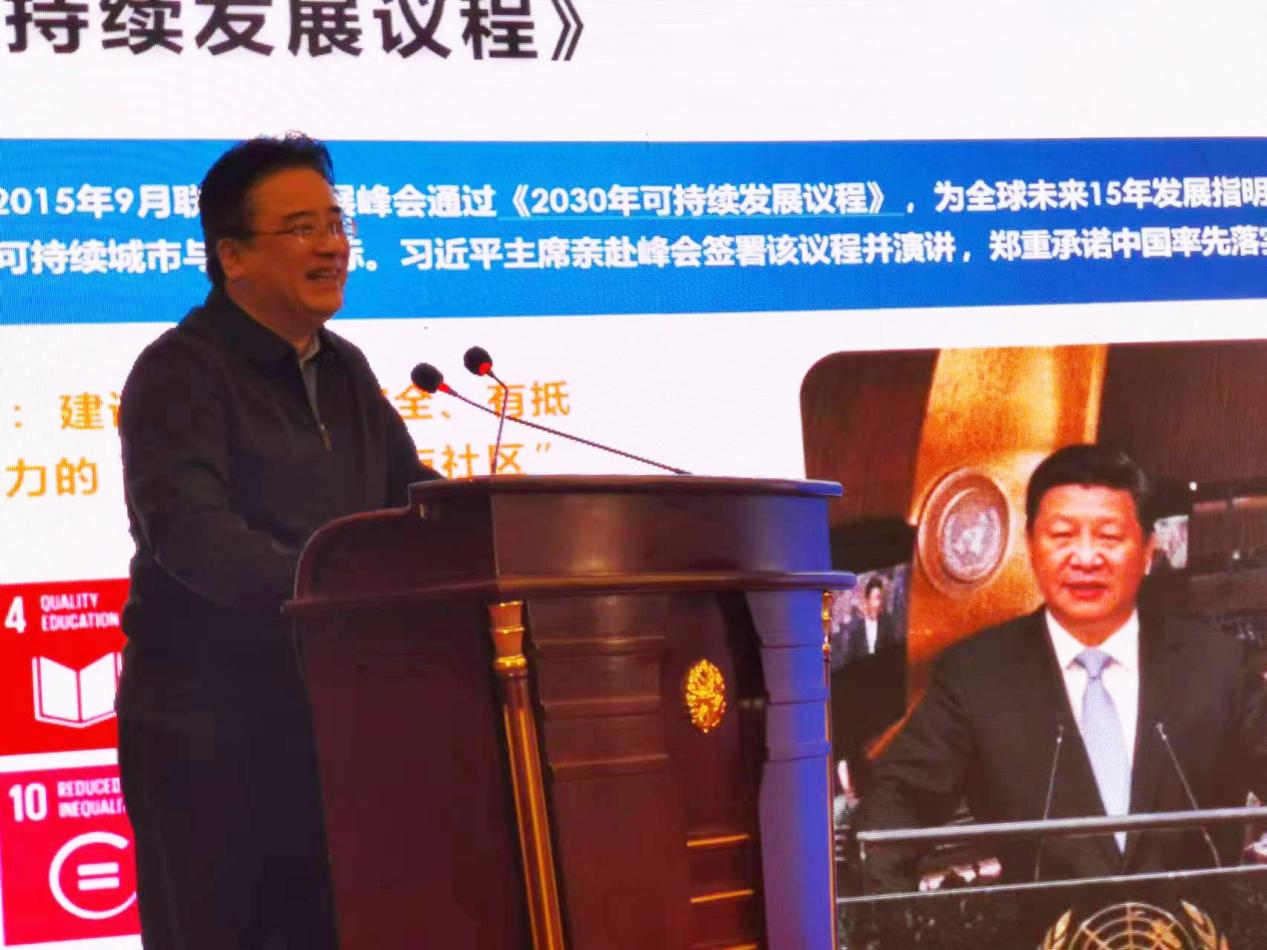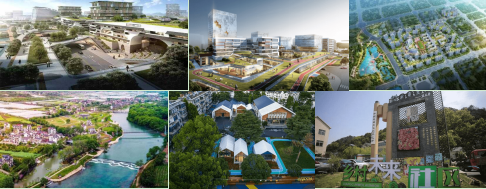On December 8, the "Green Innovation: Energizing Cities’ Low-carbon Future" Forum was held in Hefei, Anhui. Guests from government departments, non-governmental organizations, scientific research circles and business circles, and more than 200 industry representatives from various municipal Science and Technology Bureaus in Anhui and other regions attended.


The Forum is hosted by the China Science and Technology Exchange Center of the Ministry of Science and Technology, and supported by the Anhui Provincial Department of Science and Technology, the People's Government of Hefei Municipality, the Paulson Institute, and Tsinghua University. The Opening Ceremony of the Forum was moderated by Mr. Gao Xiang, Director-General of the China Science and Technology Exchange Center. Mr. Zhang Yudong, Vice Minister of Science and Technology, and Ms. Deborah M. Lehr, Vice Chairman and Executive Director of the Paulson Institute, delivered video speeches. Ms. Luo Ping, Director of the Department of Science and Technology of Anhui Province, and Mr. Luo Yunfeng, Mayor of Hefei attended the Opening Ceremony and delivered speeches. Mr. Li Xiang, President of SUC Institute, was invited as the first speaker to share "China's Pilot Practice of the United Nations Guidelines for Sustainable Cities and Communities" on the spot, which attracted great attention from the participating leaders and representatives from all walks of life. Experts from the Paulson Institute, PricewaterhouseCoopers, Ogilvy International, the Embassy of Sweden in China, Tsinghua University, University of Science and Technology of China, Hyatt Group, Gotion High-tech and other institutions also shared their views at the Forum.

Mr. Li Xiang, President of SUC Institute Spoke at the Forum
Mr. Li Xiang first thanked the China Science and Technology Exchange Center and the Paulson Institute for their warm invitation and expressed his gratitude to the Anhui Provincial Department of Science and Technology and the Hefei Municipal Government for their reception and arrangements. He said, ‘the construction of future cities must adhere to General Secretary Xi Jinping's sixteen-Chinese-character policy and concept of “global vision, international standards, distinctive Chinese features, and future-oriented goals”. As the highest international standards for the sustainable development of global cities and communities, the UN SUC Guidelines is also a scientific methodology for the high-quality development of cities and communities jointly initiated and compiled by China and the United Nations. Over the past several years, SUC Institute, as the promotion and implementation agency of the UN SUC Guidelines in China, has carried out pilot projects in many cities across the country in coordination with the Ministry of Housing and Urban-Rural Development, the National Development and Reform Commission, Tsinghua University, and other relevant agencies, conducted many successful explorations of green and low-carbon development from the three levels of cities, urban communities, and rural communities, and gained a batch of practical experience that can be promoted and replicated. Practice has proven that this set of standards not only conforms to China’s national conditions, but also greatly improves the local sustainable development performance. We hope to continue to work together with all walks of life to help local governments apply the SUC Guidelines, promote green and innovative development of cities and communities, and empower cities’ dual carbon strategies.’

Then Mr. Li shared the results and examples of the pilot practices of SUC Guidelines, especially in the field of low-carbon development, in cities and communities such as Shenzhen, Yan'an, Quzhou, Yueyang, Hangzhou, Changxing, Fuzhou, Xinyang, etc. in China from 2019 to now.
According to Mr. Li, after the five-year pilot practice of SUC Guidelines, SUC Institute believes that to promote the low-carbon development for cities must stick to the principle of “standard-led and planning-first equal emphasis on scientific management and scientific implementation” with a systematic approach. For urban communities, it’s necessary to keep in mind that “they should advocate low-carbon buildings and energy resource conservation; what’s more, they should enable residents to experience the tangible benefits of low carbon”. As for rural communities, “the low-carbon green is originally the true color of rural area. Low-carbon standards and behavioral guidelines shall be translated into vivid and concise expressions to be integrated into residents’ lifestyles”.

It is learned that the UN SUC Guidelines is formulated according to the UN Sustainable Cities and Communities Goal (SDG 11) and consists of 3 parts: Evaluation Criteria, Management Process and Key Action Points. It is the “top international standards” and technical guidelines for the high-quality development of cities and communities. The Guidelines was edited by the United Nations Environment Programme (UNEP), with the participation of the United Nations Human Settlements Programme (UN-Habitat), the United Nations Office for Sustainable Development (UNOSD), etc., and experts from China's Ministry of Housing and Urban-Rural Development (MOHURD), Ministry of Ecology and Environment (MEE), National Development and Reform Commission (NDRC), Standardization Administration (SAC), Chinese Academy of Sciences (CAS), China Architecture Research Institute (CARI), Tongji University, Zhejiang University (ZJU), City University of Hong Kong (CityU), etc. It was released globally as an official UN document in December 2018. In September 2019, after it had been proposed at the national Two Sessions and filed by the General Office of the State Council, MOHURD and MEE formally replied to support the promotion and application of SUC Guidelines at the national level and in countries along the "Belt and Road". Over the past 5 years, numerous innovative modes, implementation mechanisms and successful cases, formed from the pilots of SUC Guidelines, have been widely quoted and learnt in different fields, and have been highly recognized by the relevant UN agencies, national ministries & commissions, and provincial and municipal governments, effectively promoting the process of high-quality sustainable development for Chinese cities and communities.
